ICT | 资讯与科技
Maha Bodhi School ICT Department
Our Vision
To nurture future-ready learners who are Competent, Responsible, and Discerning users of ICT,
equipped with the skills to thrive in an increasingly digital world.
Department Goals
-
Competent, Responsible, and Discerning users of ICT
Our students are taught to harness technology effectively, ensuring they become confident and ethical users of digital tools. By instilling a sense of responsibility, we prepare them to navigate the digital landscape with care and integrity. -
Critical Thinkers and Resilient Problem Solvers
Through immersive learning experiences, we cultivate critical thinking and problem-solving skills. Our students learn to approach challenges with resilience and creativity, leveraging ICT to develop innovative solutions.
Baseline ICT Standards and New Media Literacies
At Maha Bodhi School, our Baseline ICT Standards and New Media Literacies (NML) framework guide the development of essential ICT and literacy skills that our students will acquire throughout their six years. These foundational skills equip them to thrive in an increasingly technology-driven world.
The Baseline ICT Standards establish the essential knowledge, skills, and values our students need to engage with a curriculum enriched by technology. They ensure that students are prepared to leverage digital tools effectively and responsibly as they progress through their education.
New Media Literacies (NML), in the context of Singapore schools, emphasize the skills, knowledge, attitudes, and values (SKAV) students must apply when utilizing technology for learning. These literacies encourage students to not only use digital tools but to do so critically, creatively, and ethically.
For Lower Primary students, ICT lessons are conducted by teachers in computer labs and classrooms, and students also engage in self-directed learning through curated course packages on the Singapore Student Learning Space (SLS) platform. Middle Primary students continue with these packages to reinforce their ICT skills independently.
As they progress, Middle and Upper Primary students will have opportunities to apply their learning through project work and school assignments, allowing them to use ICT tools in more practical, real-world contexts.
Through these structured programs, our students progressively build confidence and competence in ICT, enabling them to become empowered learners in the digital age.
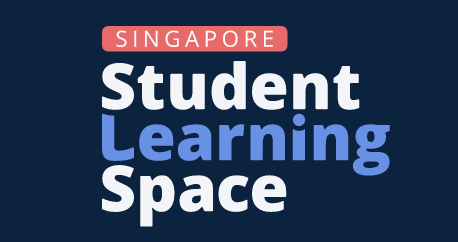
Student Learning Space (SLS)
The Singapore Student Learning Space (SLS) is one of the key platforms that supports teaching and learning at Maha Bodhi School. It empowers our students to take charge of their own learning, tailoring it to their individual needs and interests. By encouraging our students to take greater ownership of their learning and work collaboratively with their peers, the SLS plays a critical role in helping them become responsible, future-ready learners.
Aligned with the development of 21st Century Competencies (21CC), the SLS fosters self-directed learning and collaboration. Through this platform, students are encouraged to explore and deepen their understanding of various subjects at their own pace, promoting a sense of ownership over their learning. This process not only strengthens academic skills but also nurtures the joy of learning as students engage with interactive and personalized content.
Coding Curriculum: P5 Code for Fun
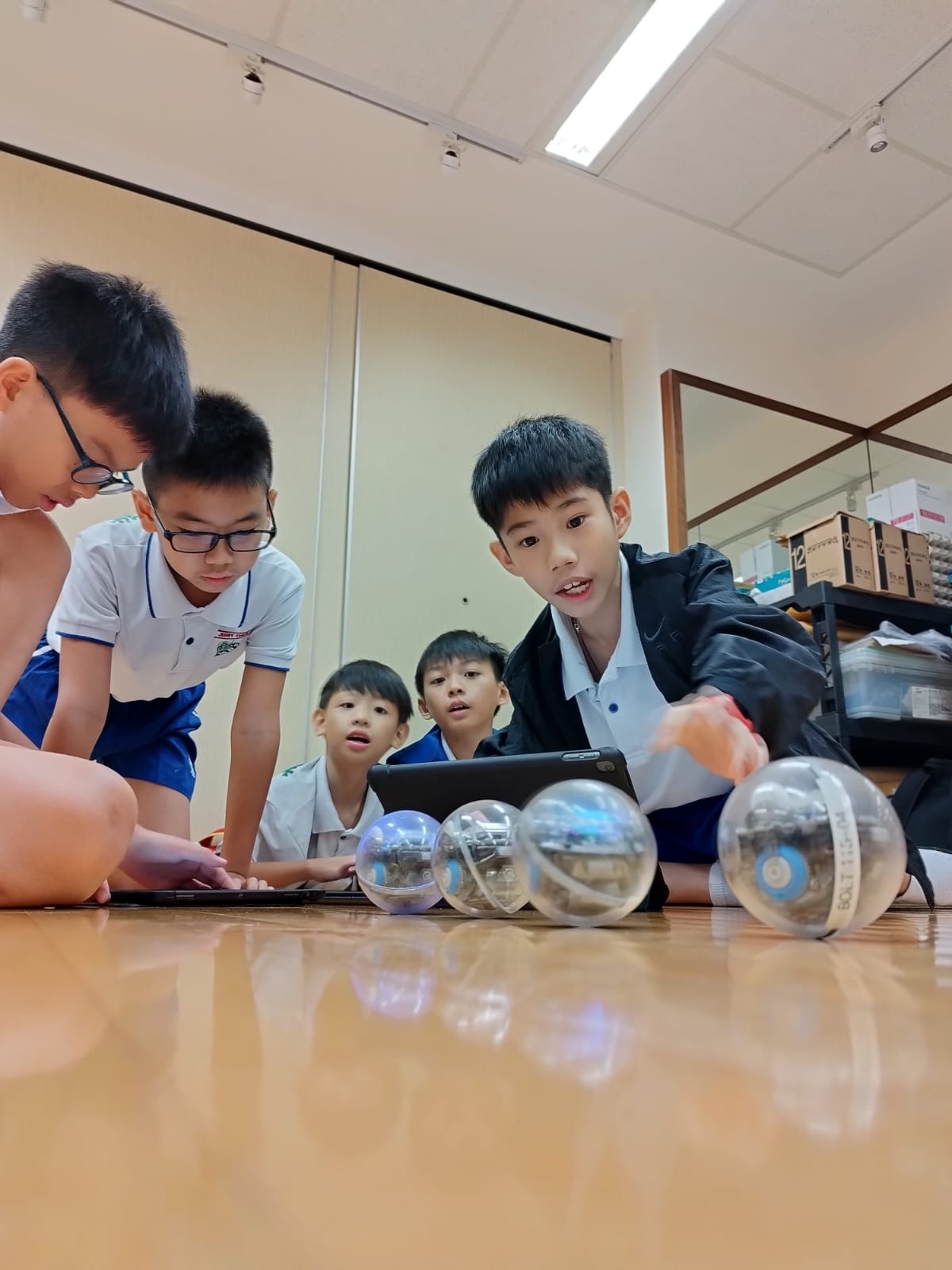
At Maha Bodhi School, our Primary 5 students will embark on the Code for Fun program during Experiential Learning Week. This 10-hour program is designed to help students develop a strong appreciation for core computational thinking and coding concepts.
-
Computational Thinking is a structured problem-solving process that allows students to break down complex issues and communicate precise instructions to a computer.
-
Programming focuses on giving clear, specific instructions to a computer or robot. Using block-based programming, students will learn to program the Sphero robot to light up in different colors, move, draw shapes, use loops to repeat instructions, and react to events through sensor data.
-
Artificial Intelligence (AI) introduces students to how machines and computers can be programmed to learn from data and experiences, mimicking human behavior. Students will explore how AI improves over time without explicit programming, giving them insight into modern technology.
Coding Curriculum: P4 Code Monkey
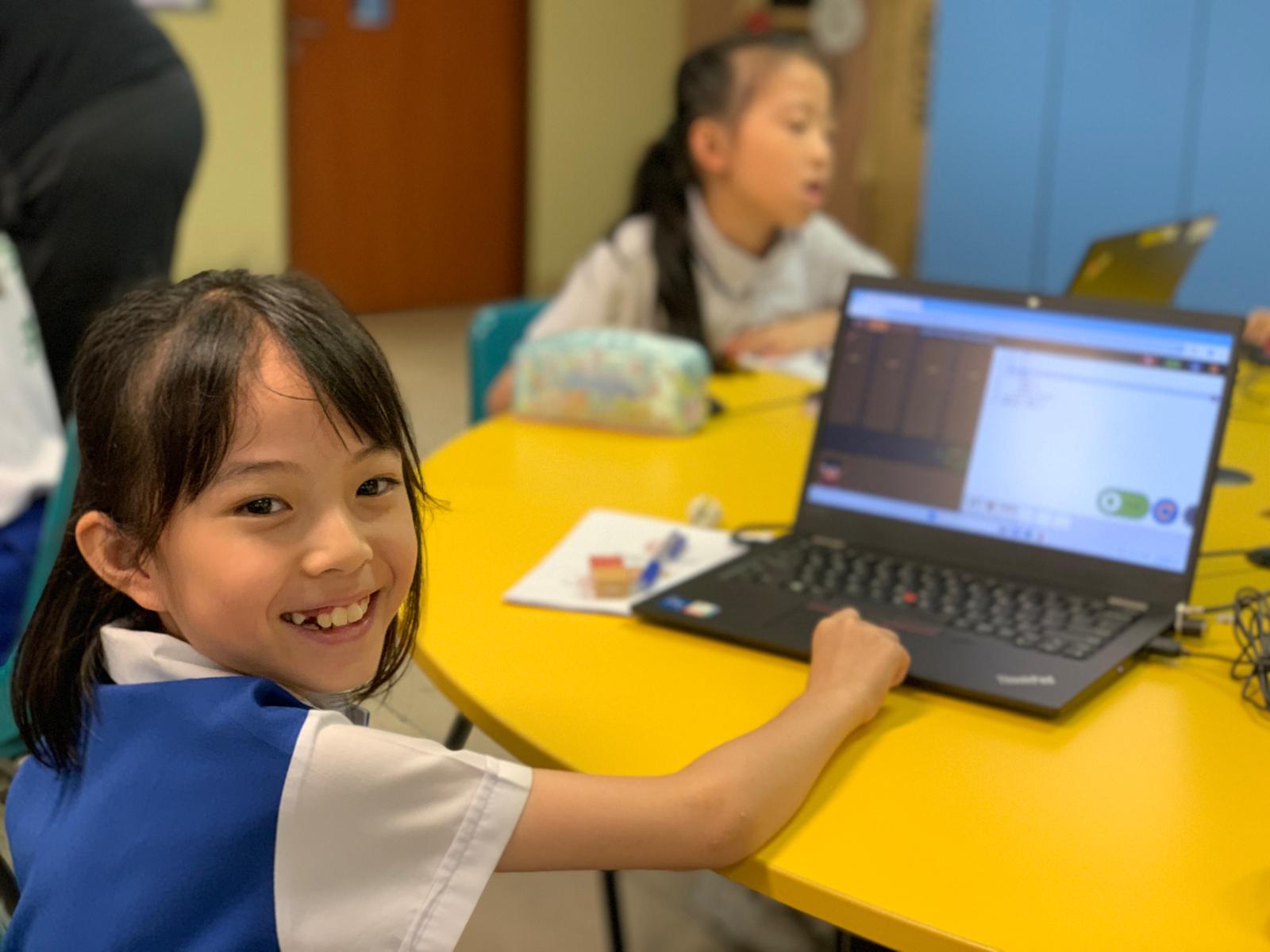
Primary 4 students will participate in the Code Monkey program during Experiential Learning Week, an engaging platform designed to introduce them to the fundamentals of coding through interactive and game-based learning. This program helps students develop computational thinking by guiding a monkey to collect bananas using code. As students progress through the game, they will learn core programming concepts such as sequences, loops, functions, and conditionals.
Through this fun and hands-on approach, students gain a foundational understanding of coding, learning to apply logical thinking and problem-solving skills in a structured way. The P4 Code Monkey program not only fosters a love for coding but also builds the essential skills that will prepare them for more advanced coding challenges in the future.
Coding Curriculum: P3 Ozobot
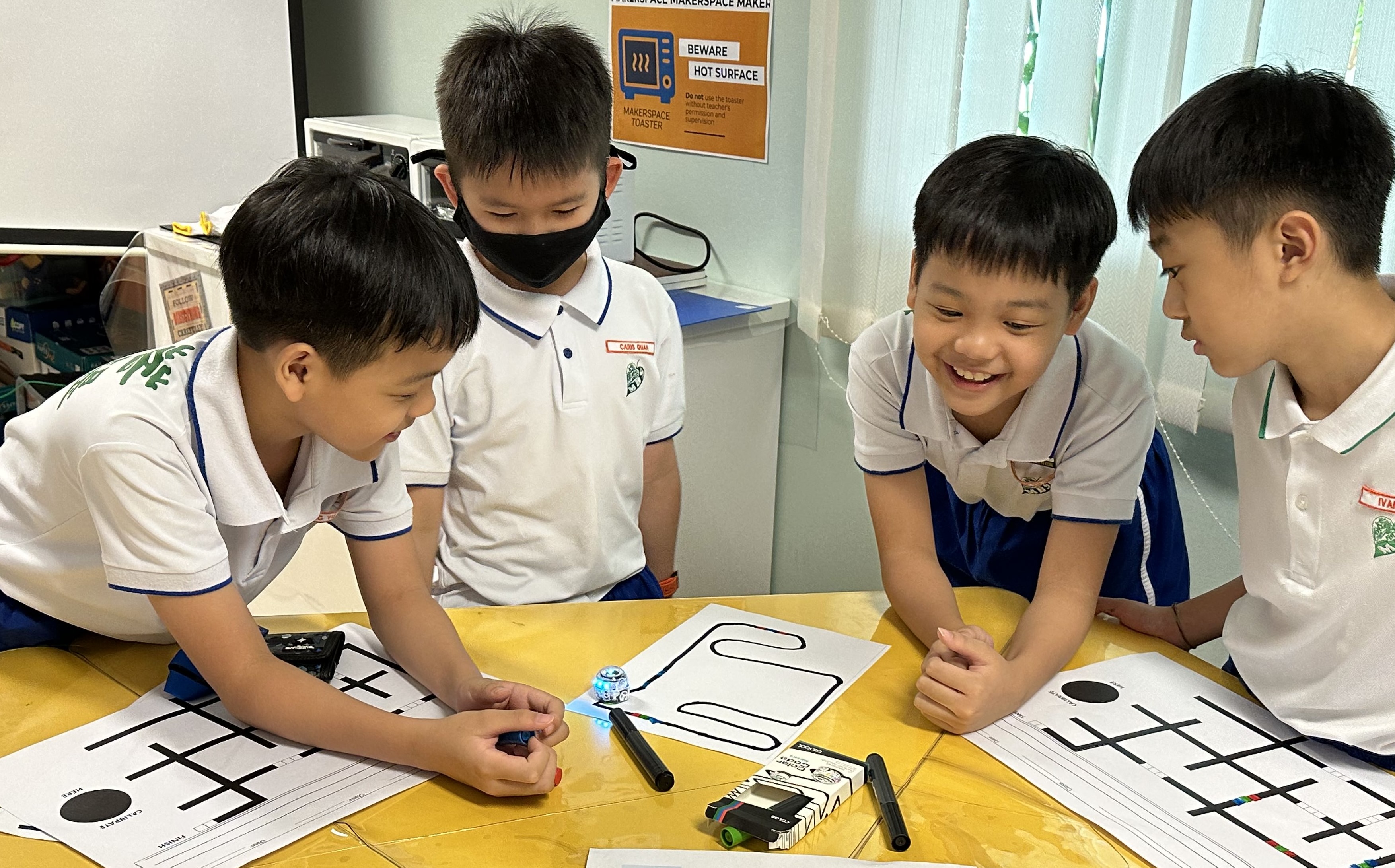
In Primary 3, students are introduced to the world of coding through the Ozobot program. Using small, programmable robots called Ozobots, students learn the basics of coding through a fun and interactive approach. They use color-coded lines and simple programming techniques to control the Ozobot’s movements, teaching concepts such as sequencing, loops, and basic problem-solving.
The P3 Ozobot program helps students develop an early understanding of coding principles in a tangible way, encouraging hands-on exploration and creativity. As students program their Ozobots to complete different challenges, they build their confidence in logical thinking and collaboration, laying the groundwork for more complex coding activities in later years.
Coding Curriculum: P2 Coding Awbie and Coding Jam (Music)
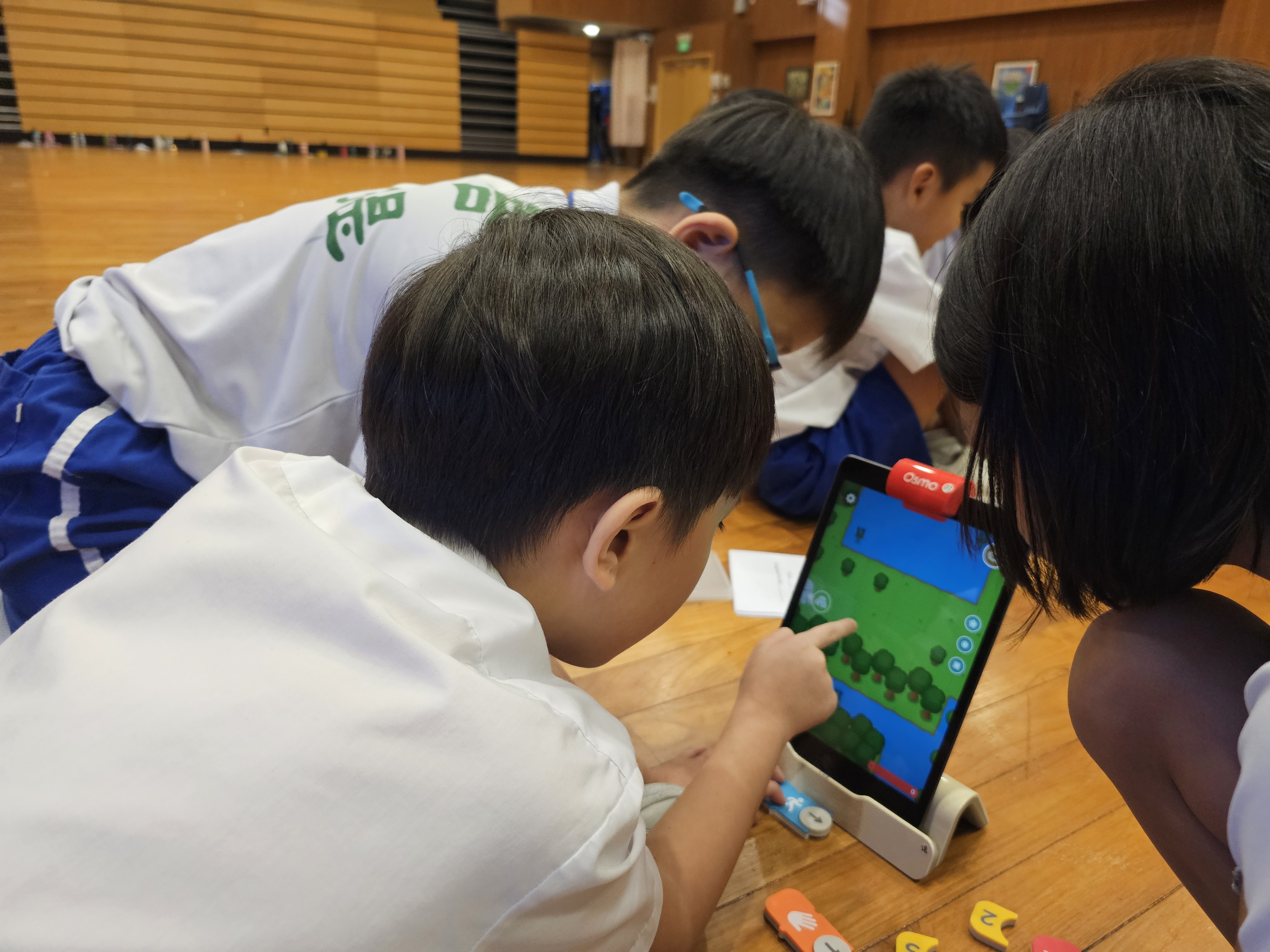
In Primary 2, students are introduced to the world of coding through two exciting programs: Coding Awbie and Coding Jam. Both programs leverage Osmo’s hands-on learning system to teach foundational coding concepts in an interactive and engaging way.
Through Coding Awbie, students guide a game character, Awbie, by arranging physical coding blocks to represent commands like move, jump, and repeat. This playful approach teaches them important coding concepts such as sequencing, loops, and debugging while fostering a love for problem-solving and creativity.
Coding Jam allows students to explore coding through music creation. By arranging blocks that represent musical commands, students learn how to sequence and combine sounds to create their own unique musical compositions. This helps them build on their coding skills in a fun and imaginative way while introducing them to patterns, algorithmic thinking, and creativity in coding.
Together, Coding Awbie and Coding Jam provide a dynamic learning experience that equips students with essential skills in computational thinking and prepares them for more advanced coding activities in the future.
MakerSpace Education at Maha Bodhi School
The MakerSpace at Maha Bodhi School is a vibrant and creative hub located within the school library, designed to foster innovation, resilience, and a future-ready mindset among our students. This hands-on learning environment is equipped with a variety of tools and resources, allowing students to engage in craftwork that hones their psychomotor skills—such as cutting, pasting, and coloring—using materials like markers and colored pencils. The MakerSpace empowers students to turn their ideas into real, tangible objects, whether it’s creating art pieces from salt or crafting unique bookmarks to share with friends.
In recent years, the significance of STEM (Science, Technology, Engineering, and Mathematics) education has grown, and our MakerSpace has been developed to expose students to these important disciplines. Catering to all students from Primary 1 to Primary 6, the MakerSpace promotes a spiral learning approach where skills are revisited and built upon over time. For instance, Primary 4 students engage in projects where they construct circuit cards using copper tape, bulbs, and batteries, enabling them to light up greeting cards for family and friends. Primary 3 students explore salt art, using different colors and designs to express their creativity while learning about the concept of diffusion in science.
Moreover, during Experiential Week, all Primary 5 students can use 3D pens to design keychains that they can keep or gift to others. This hands-on experience not only enhances their understanding of 3D design but also boosts their confidence in using technology creatively. In addition, through collaborative projects with Science department, students learn to source and prepare recyclable materials, developing a sense of social responsibility while contributing to the community.
By engaging in these diverse projects, students cultivate essential skills, learn to negotiate and work together, and foster a sense of community and shared purpose. With an emphasis on creativity and exploration, the MakerSpace serves as a vital platform for lifelong learning, where every student can discover the joy of making and innovating.

